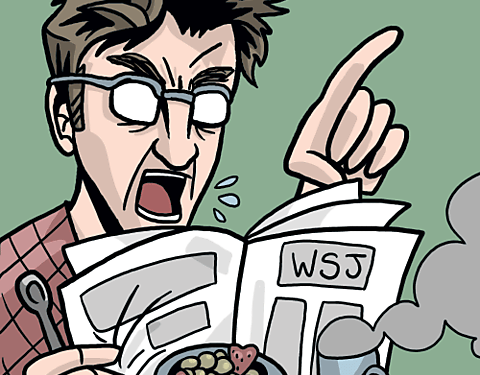Grumpy economist John Cochrane, the Rose-Marie and Jack Anderson Senior Fellow of the Hoover Institution at Stanford University and a Cato Institute adjunct scholar, has published a kind and lengthy write-up of my National Affairs article, “U.S. Health Care: The Free-market Myth.”
Cochrane and I may have some differences of interpretation. Where I write:
Medicare pays ambulatory surgical centers (ASCs) $1,000 per cataract surgery with intraocular lens insertion but pays hospitals $2,000 for the same procedure.
Cochrane surmises:
Cannon has fun with Medicare pricing “errors,” though they look to me more like deliberate cross-subsidies to different actors with different negotiating power or political favor vs. the government.
Assuming the market-clearing price (MB=MC) for that procedure is $1,000, the higher Medicare price-payment to hospitals could occur because hospitals are beseeching policymakers: Look, if you want us to keep treating the uninsured, you really have to jack up these other prices. Or because different bureaucrats set prices for ASCs vs. hospitals, they don’t talk to each other, and they’re all just groping around in the dark. Most likely, it’s some combination of both, and hospitals’ relentless lobbying for higher prices preserves even those pricing errors they didn’t cause. (To make things even more grim, it’s likely that even $1,000 is excessive.)
Cochrane and I appear to disagree (but probably don’t) about how providers and insurers approach price negotiations in response to ginormous government programs purchasing the same stuff. He assumes private insurers just tack a percentage on top of the Medicare price. That may be true in some cases, but not others.
When Congress directly links Medicare and Medicaid prices to private sector prices (e.g., when Congress says it will pay 106 percent or 87 percent of the private-sector price), drug manufacturers increase the prices they charge private payers (15 percent, by one estimate). In this case, the Medicare price is itself the result of a ratio, and Congress lets the drug manufacturers control the denominator.
Cochrane appears to assume that higher private-sector prices mean that private insurers are subsidizing Medicare and Medicaid. Michael Morrisey’s Cost Shifting in Health Care: Separating Evidence from Rhetoric explains that what’s actually happening is a combination of Medicare/Medicaid crowding out private customers, plus providers subsequently price-discriminating against the private payers that remain. (See Chapter 2, starting on p. 11 of the book and p. 23 of the pdf.) That’s the key to understanding why “a $1.00 increase in Medicare’s [physician prices] increases corresponding private prices by $1.16” rather than reducing private prices, which is what the cost-shifting story predicts.
Regarding voluntary health insurance in Germany, see this paper by Juan Pablo Atal, Hanming Fang, Martin Karlsson, and Nicolas R. Ziebarth:
German long-term health insurance (GLTHI) represents the largest market for private long-term health insurance contracts in the world. We show that GLTHI’s contract design coincides with the optimal dynamic contract for individuals with constant lifetime income profiles. After estimating the key ingredients of a life-cycle model, we find that, under a variety of assumptions, GLTHI achieves welfare that is at most 4% lower than for the optimal contract. Relative to the gains of replacing short-term contracts with either of the two long-term contracts, this welfare gap is smallest when reclassification risk is high.
If health insurance market failures would leave us just 4 percent (!) short of optimality, it makes you wonder what the hell all the fuss is about. Maybe it’s evidence that we can let people purchase long-term health insurance in an open market, exempt from Obamacare’s regulations? I’m pretty sure the government-failure figure is an order of magnitude larger.















